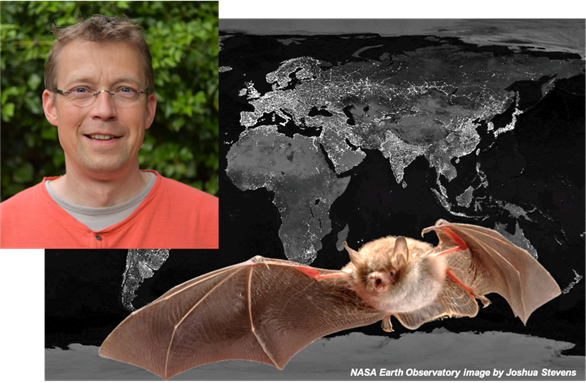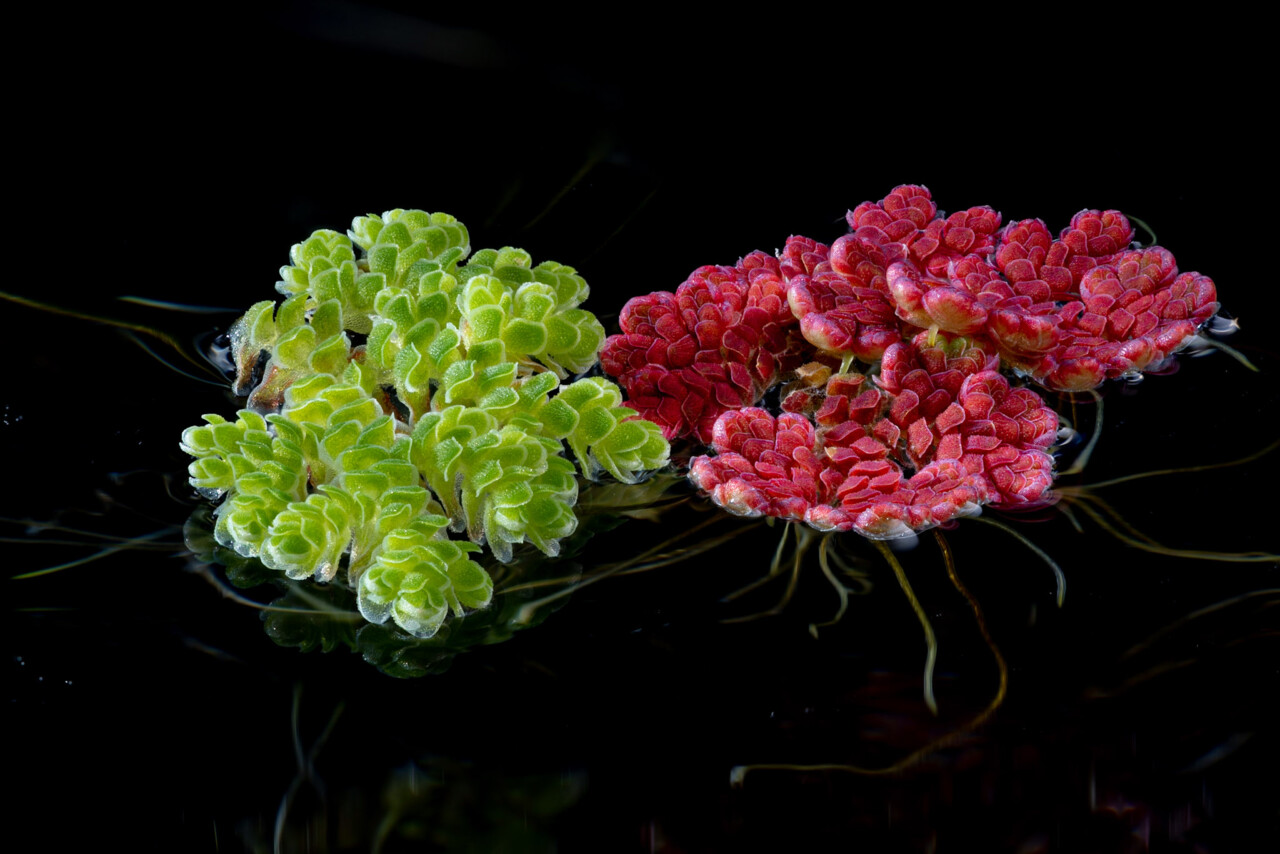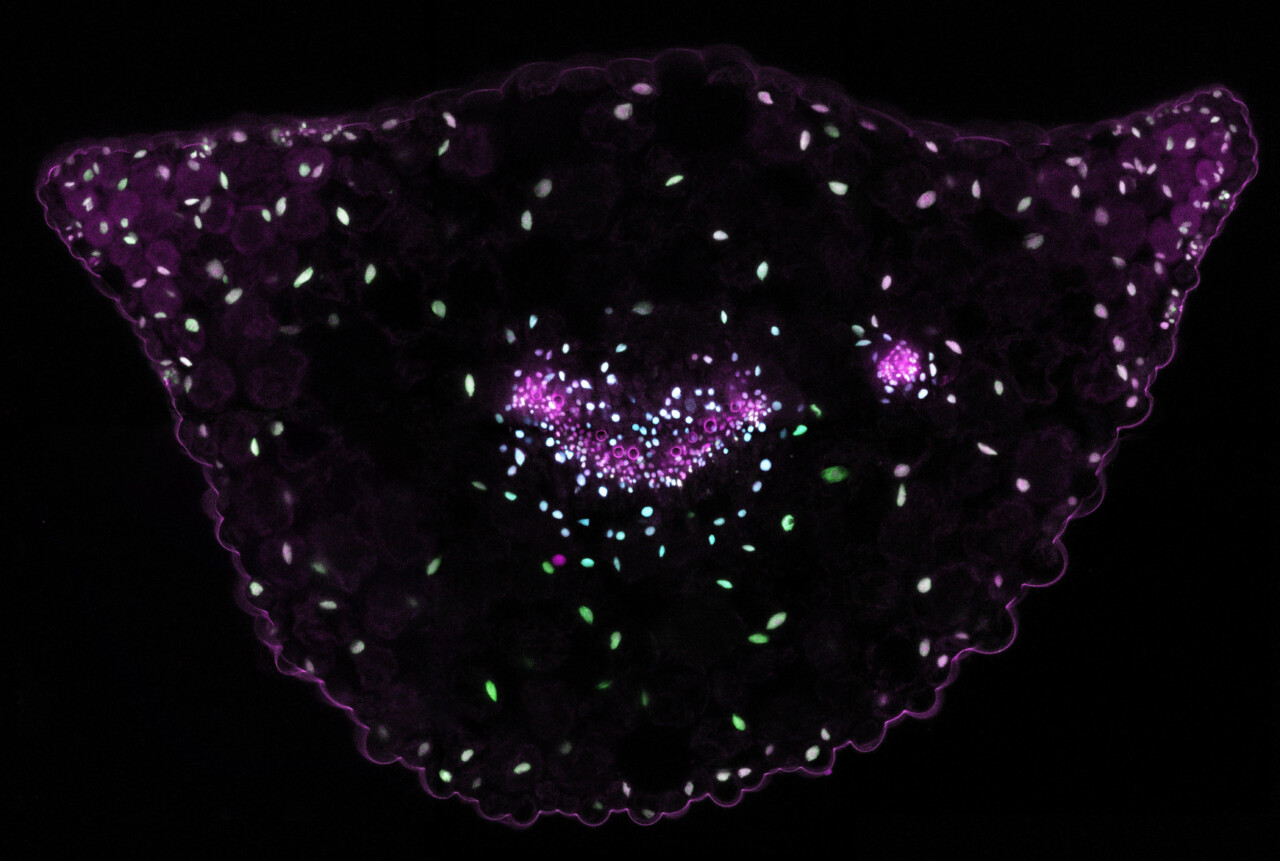
WEES seminar & Workshop
Dr. Kamiel Spoelstra, Netherlands institute of Ecology (NIOO-KNAW)
Seminar:
Spectrum dependent effects of light at night: The colour composition of illumination defines impact on behaviour and habitat loss of different species
Time: 16:00
Venue: C3020
The presence of light at night is a major challenge for ecosystems. Nocturnal illumination has shown a dramatic increase over the last decades and continues to increase. Evidence showing negative impact of artificial light at night on species and ecosystems is accumulating: effects vary from direct mortality to disruption of species’ natural behaviour. The impact of light may be particularly severe for insects, rodents, bats, and amphibians as these species strongly depend on darkness. For a long time, knowledge on the impact of light was limited to short-term effects, often observed near existing illumination and just for standard spectra. How light colour affects species is particularly important as the current transition from traditional light sources to LED lighting allows for custom spectral adaptation.
I therefore study the long-term impact of experimental light on species in their natural environment. This is done using standardized protocols in a citizen science approach combined with highly automated data collection systems. The results show a strong variation in the response of both diurnal and nocturnal species to the presence of artificial light. Birds show clear individual responses, with no detectable population effects after several years. Bats respond very strongly to light; however, the impact is very different between species and light colour, and highly depends on specific foraging ecology. Other mammals show various responses, but small mammals are generally strongly affected, irrespective of light colour. Insects respond very strongly, however, the impact on local moth populations around experimental lights is latent. Behavioural experiments in the lab and in the field reveal consequences on spatial and temporal behaviour of multiple species. Generally, the outcome indicates that light colour is highly important, and hence the spectrum has to be considered when illuminating infrastructure in or near sensitive ecosystems.
Workshop:
Assessment of behavioural responses on environmental stressors in the field
Time: 13:30
Venue: C4042
In the workshop two topics are discussed: the first is the problematics of long-term assessment methods of different species in the field. Often, data are best collected such that these are optimal for answering specific questions. However, long-term monitoring protocols should be rigid, and hence limit these possibilities hereto. Other problems are the logistics behind the monitoring of inconspicuous, nocturnal species. The second topic is the assessment of temporal changes in activity of species. As many species respond to environmental stressors by changing their daily timing of activity, it is often difficult to discern between direct and indirect responses, although these may have very different ecological consequences.
As preparation for the workshop please read:
Spoelstra, Kamiel, Roy H. A. van Grunsven, Jip J. C. Ramakers, Kim B. Ferguson, Thomas Raap, Maurice Donners, Elmar M. Veenendaal, and Marcel E. Visser, 2017. Response of Bats to Light with Different Spectra: Light-Shy and Agile Bat Presence Is Affected by White and Green, but Not Red Light. Proc. R. Soc. B: 284 (1855): 20170075. https://doi.org/10.1098/rspb.2017.0075.
Spoelstra, Kamiel, Irene Verhagen, Davy Meijer, and Marcel E. Visser, 2018. Artificial Light at Night Shifts Daily Activity Patterns but Not the Internal Clock in the Great Tit (Parus Major). Proceedings of the Royal Society B: 285 (1875): 20172751. https://doi.org/10.1098/rspb.2017.2751.
De Jong, Maaike, Jenny Q. Ouyang, Arnaud Da Silva, Roy H. A. van Grunsven, Bart Kempenaers, Marcel E. Visser, and Kamiel Spoelstra, 2015. Effects of Nocturnal Illumination on Life-History Decisions and Fitness in Two Wild Songbird Species. Philosophical Transactions of the Royal Society of London B: Biological Sciences: 370 (1667): 20140128. https://doi.org/10.1098/rstb.2014.0128.
(References also available upon registration)
The workshop for those interested is organized from 13:30 to 15:00 in room C4042, Orion building. Registration is required (space limited to 15), email Nelleke Buitendijk.The workshop gives attendees the possibility to meet the speaker of the seminar and have a discussion based on a recent publications. The workshops are a good possibility to get acquainted with hot topics in science and to learn how to discuss these topics with leading scientists in the field. Furthermore, BSc and MSc students can get 1 ECTS for attending 2 workshops.
WEES background
WEES is an initiative of PhD students and postdocs at Wageningen University to organize a continuing series of stimulating seminars on contemporary topics in evolution and ecology. We aim to bring together different groups at Wageningen University using a variety of systems, but with a common interest in evolutionary and ecological questions. For this series we invite researchers from all over the world who have leading roles in their field. After the talk there will be drinks for an informal discussion. WEES is funded by graduate schools PE&RC, WIMEK, EPS, VLAG, and WIAS.
For more information please visit:www.weeswageningen.nl,Like us on Facebook, orjoin the Facebook Groupfor more participation.
Thursday, January 24, 2019
13:30 - 18:00
WUR – Orion
Bronland 1, Wageningen



